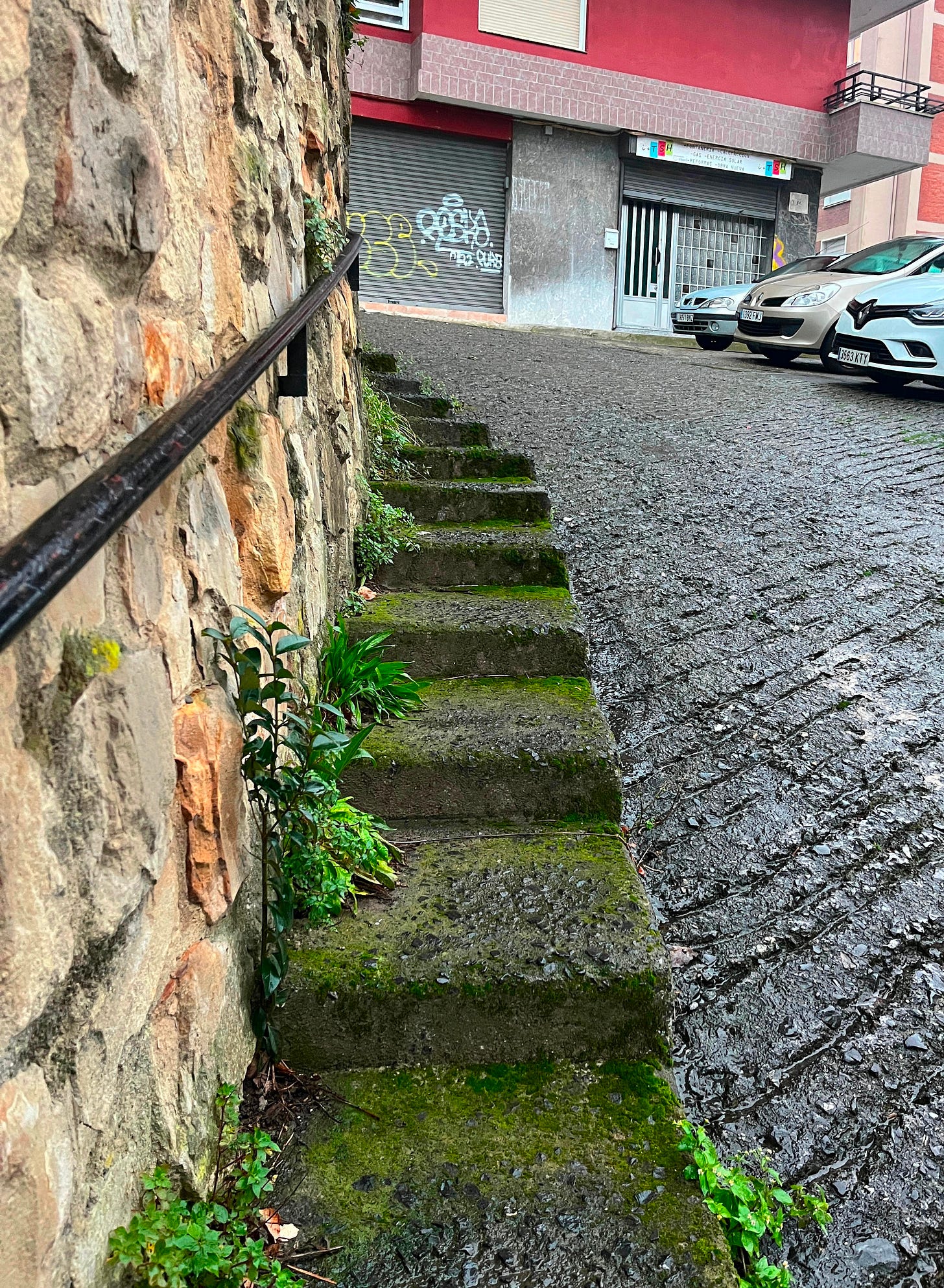I’ve crossed a border into Spain, and we’re all crossing tipping-point thresholds, too many to count. We’ve passed into 2025, already a quarter into this no-longer-new century of this still-quite-young millennium, and it took mere weeks before wildfires were consuming entire communities in southern California and floods making people flee their homes in Malaysia. Tomorrow, we pass into a new American administration that will make these stories even more frequent as we catapult into a future that feels all too tenuous. Still, still, I repeat like a mantra, it’s not too late, it’s not too late. See Katharine Hayhoe’s great recap of 2024 with lots of good actionable information to carry with you into the new year. She also offered a reminder that although we did indeed pass an entire year having crossed the threshold into a world 1.5 degrees Celsius warmer than pre-industrial times, we’re still not there in terms of the ten-year average that will mark our true failure to reach the goals set at the Paris Climate Accords. If thinking about the future feels daunting, I get it. Britt Wray has changed her Substack’s name from Gen Dread to Unthinkable, also the name of a new climate-mental health platform that has a host of resources for taking care of yourself. Check them out and repeat after me, it’s not too late, it’s not late…
And so I’m here in Spain to follow that line of inquiry, seeking solutions as clean energy ramps up around the world. I arrived in Bilbao this week for my FRONTIERS residency (more here). It’s cold and clear, my exhales misting the morning air as I wait for the bus after huffing my way uphill, hugging the slick steps springing with green life along the way. Fifteen minutes later, I’m at the University of Basque campus, settled into desk number six at the Basque Center for Climate Change (BC3), where researchers from around the world are working on the climate conundrum from a multitude of angles. I sit between Izotzalab, the Iberian Peninsula’s first ice lab, and a meeting room that springs into activity a couple times a day as researchers from the different research lines—low-carbon society to terrestrial ecosystems to adaptation—come together. Some drift into the kitchen for a morning coffee hour, abuzz with Spanish and English in a variety of accents, researchers coming from Basque Country and other parts of Spain, but also Colombia, France, Turkey and beyond. It’s exciting to begin to learn about their work and also have the time to sit down to a backlog of bookmarked studies about how renewable energy projects could be built better for biodiversity, people, and place, the big question that I’m exploring while here. I’l keep you posted of my findings as they unfold.
Take note…
In other news, ‘tis the season of applications and award nominations. I couldn’t do the journalism I do without trying for these opportunities, and then trying again. I encourage you to apply. Here are just a few:
The Matthew Power Literary Reporting Award is a grant of $12,500 to support the work of a promising early-career nonfiction writer on a story that uncovers truths about the human condition. Matt was a dear friend, a Brooklyn housemate, and an inspiration when I was just emerging from grad school. He knew how to be scrappy, and this is a game-changing amount of reporting money that can help you, if you’re scrappy, too. Deadline: Feb. 19
The $10,000 McElheny Award honors outstanding local and regional journalism covering issues in science, public health, technology, or the environment. (US applicants only.) Deadline: Jan. 31
SEJ Awards for Reporting on the Environment. Lots of time for this one, which has a host of categories. Deadline: June 30
The Science in Society Journalism Awards from NASW provide recognition for investigative or interpretive reporting about the sciences and their impact on modern society. Deadline: Feb. 1
Metcalf Annual Science Immersion Workshop for Journalists who are full-time professionals, including freelancers, working in any medium and beat, and want to learn more about research and topics relating to climate change science, impacts, adaptation, and justice. And get your mind blown by looking at an octopus under a microscope. Deadline: Feb. 14
I tossed my name into the hat for the True Story Award last year and am delighted to share that my New Yorker piece, Consider the Vulture, funded by a National Geographic Explorer grant, made the shortlist. It’s a global award from a foundation based in Bern, Switzerland that accepts submissions in ten languages! Honored to be there along with other English pieces from the Guardian, Harper’s, the Economist, Wired and the Atavist.
Are you still repeating after me? It’s not too late. 1.5 degrees can feel like a threshold we can’t step back over. So can Trump 2.0. Some roads are steep. But up we go, step by step. Not far from my apartment in Bilbao is a road showing we once built the places we lived for humans more than machines. A reminder that we can still do that, if we so choose. Maybe space for some green living things to take root, too. Maybe we reach out a hand and help the next person up, each of us shouting, to ourselves and the world…
It’s
not
too
late.
🌿






You bring hope into my life!
Thank you for finding the positive stories!
And Congratulations on the NYtimes article! You are brilliant!
Shine On!